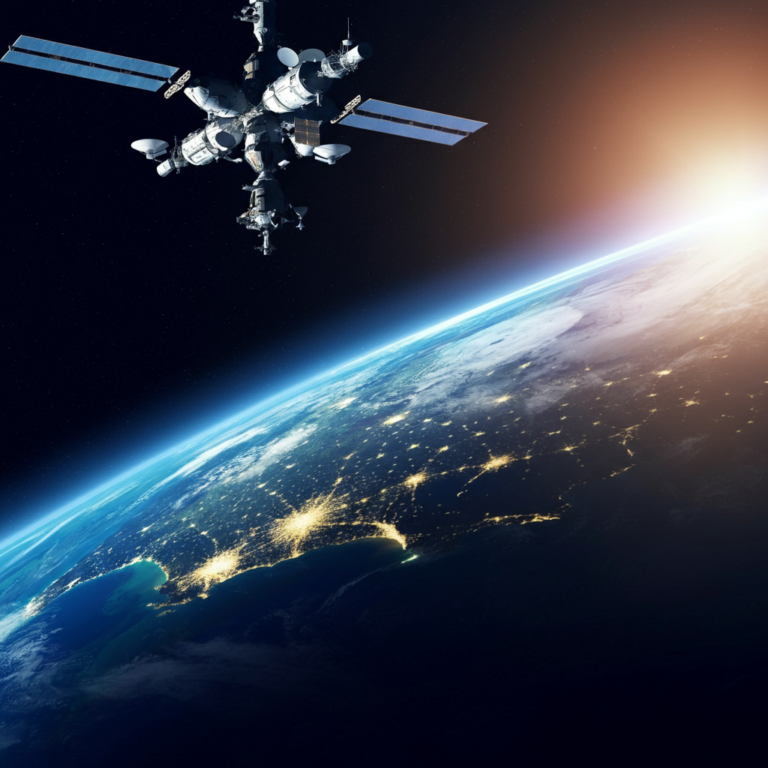Space exploration often evokes images of astronauts floating in zero gravity, rockets launching into the vast unknown, and distant planets waiting to be discovered. However, beyond the captivating visuals and thrilling milestones, space exploration directly improves life on Earth in profound and often overlooked ways. From technological advancements to reshaping global collaboration, space exploration influences countless aspects of modern society.
This blog will explore how space missions fuel innovation, improve daily life, and solve real-world challenges. By the end, you’ll see how our ventures into space come full circle, delivering significant tangible benefits back home.
Why Invest in Space Exploration?
Before we examine specific benefits, it’s essential to understand why investing in space exploration is so important. Space missions present challenges that require creative problem-solving, innovation, and cross-disciplinary collaboration. These challenges often result in technological advances and solutions that benefit industries far beyond space exploration itself.
Additionally, space exploration ignites curiosity and ambition, encouraging future generations to pursue careers in science, technology, engineering, and mathematics (STEM). Every dollar invested in exploring the cosmos is ultimately reinvested into creating a more innovative and sustainable planet.
Key Technological Advancements Born from Space Exploration
1. Satellite Technology and Improved Communication
One of the most tangible benefits of space exploration lies in satellite technology. Satellites launched into orbit as part of space missions support modern communication networks.
How It Helps Us:
- Global Connectivity: Satellites enable instant communication worldwide, powering everything from smartphones to the internet.
- Emergency Services: Data from satellites helps emergency responders identify disaster zones, monitor recovery efforts, and send targeted aid.
- Navigation Systems: GPS, used daily for navigation, traffic updates, and logistics, wouldn’t exist without satellites developed for space exploration.
2. Medical Innovation
The demands of space travel have driven remarkable advances in medical technology and practices. Astronaut health and safety require intense research, much of which translates into healthcare improvements on Earth.
Examples of Medical Benefits:
- Portable Medical Devices: The need to monitor astronauts in confined environments sparked the creation of compact medical technology, like portable heart monitors.
- Advanced Imaging Technology: Techniques used to study distant planets play a role in refining CT scans and MRI machines, leading to earlier and more accurate diagnoses.
- Robotic Surgery Assistance: NASA’s research on remote-controlled robotics for space missions has influenced the development of robotic surgery tools, allowing precise surgeries even in remote locations.
3. Everyday Consumer Products
Many conveniences in modern life originated as solutions to challenges in space. Consider a few examples:
- Memory Foam: Originally developed to improve seat cushioning for astronauts, memory foam is now ubiquitous in mattresses, shoes, and medical equipment.
- Water Filtration Systems: Technology devised for recycling water aboard spacecraft is now used globally to provide clean drinking water, particularly in areas without regular access.
- Scratch-Resistant Lenses: Designed to protect astronaut helmets, scratch-resistant coatings are now standard in glasses, sunglasses, and camera lenses.
Environmental Benefits Driven by Space Exploration
Climate Monitoring and Protection
Satellites don’t just improve communication—they’re also vital tools for studying Earth’s climate. Monitoring devices aboard satellites collect data that shapes our understanding of climate change, natural disasters, and global ecosystems.
Applications of Satellite Data:
- Tracking Deforestation: Satellites enable scientists to monitor illegal logging and land degradation in real-time.
- Predicting Natural Disasters: Data helps predict hurricanes, floods, and earthquakes, allowing early warning systems to save lives.
- Reducing Greenhouse Gases: Research conducted on the International Space Station (ISS) supports sustainable technology development, such as advancements in renewable energy.
Progress in Renewable Energy
To power spacecraft, researchers have continuously improved solar panels and battery technologies. These breakthroughs have translated into advanced renewable energy solutions on Earth, making solar energy more efficient and affordable.
Advancing Science and Education
Space exploration has always fueled curiosity and inspired generations to look towards the stars. It fosters a universal drive to innovate and pursue ambitious goals, triggering advancements across scientific fields.
How It Impacts Education:
- STEM Workforce Development: Space programs create excitement about STEM fields, leading more students to explore careers in science and engineering.
- Cross-Disciplinary Learning: Space missions demand collaboration across physics, biology, computer science, and more, fostering well-rounded expertise.
Global Collaboration and Unity
Perhaps one of the most underappreciated benefits of space exploration is its power to unite. Projects like the International Space Station (ISS) demonstrate the possibilities of international cooperation. Countries worldwide have pooled resources and expertise to accomplish shared goals.
Examples of Collaboration:
- The ISS: Collaborators include the United States, Russia, Japan, Canada, and multiple European nations.
- Global Climate Studies: Space missions often involve coordinated efforts to monitor and address environmental crises.
This spirit of unity reminds us that humanity can achieve incredible things when working together—both on Earth and beyond.
Where Do We Go From Here?
The future of space exploration promises even more profound benefits as technology and innovation continue to accelerate. Upcoming projects like lunar bases, Mars exploration, and asteroid mining could unlock new resources and capabilities.
Next Steps:
For individuals and organizations, the key takeaway is this: space exploration lays the foundation for scientific discovery, economic growth, and global improvement. Investing in these advancements—whether through advocacy, collaboration, or specialized projects—ensures continued progress for generations to come.





















0 Comments